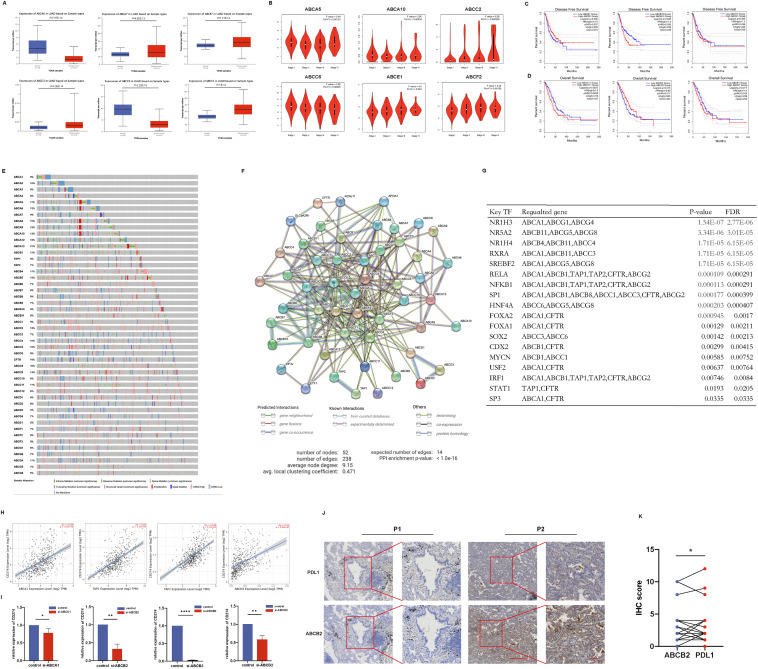
Promising prognostic value of ATP binding cassette transporters and their correlation with tumor-infiltrating immune cells in lung adenocarcinoma


Lung cancer (LC) is a prevalent and fatal malignancy, with high incidence and mortality rates.1 ATP binding cassette (ABC) transporters, a superfamily of integral membrane proteins, use ATP hydrolysis to facilitate substrate transport across cellular membranes.2 The pivotal role of ABC transporters in tumorigenesis was initially established by Mochida,3 who demonstrated that the loss of ABCB1 suppresses intestinal polyp formation and tumor progression in mice. Recent investigations have reported correlations between ABC transporters and the tumor microenvironment and cancer immunotherapy response, suggesting their modulatory effects on tumor progression and immunotherapy.4,5 However, at present, there is a lack of comprehensive and complete analytical studies on the expression, prognosis, and immune status of all genes in the ABC transporter family. In this study, we utilized public databases, coupled with quantitative real-time PCR and immunohistochemistry verification in lung adenocarcinoma (LUAD) cell lines and tissue specimens, to identify the consistent expression of ABC transporters and PD-L1 at both mRNA and protein levels. Our findings provide novel insights into potential therapeutic targets and prognostic biomarkers for LUAD.
